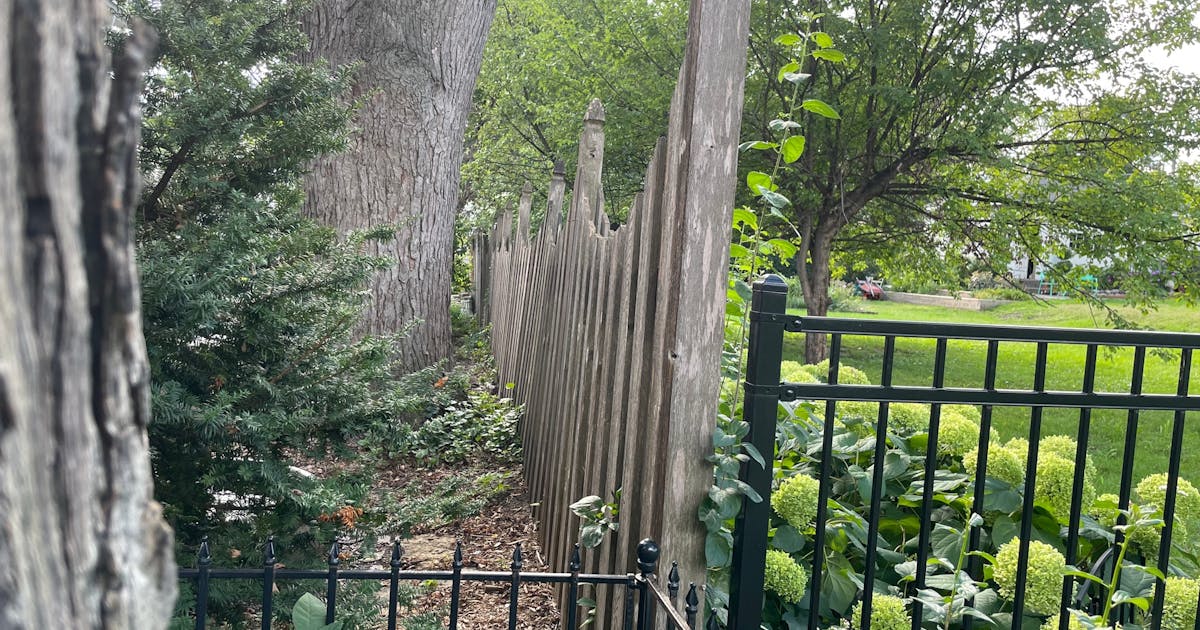
[ad_1]
A quality fence can cost a bundle. And while you can try to install one yourself, most homeowners hire fence builders to design and build them. If you’re considering installing or replacing a fence on your property, think carefully about what type of fence you want and what you want to accomplish.
Some things to consider:
What’s the purpose of the fence? To keep pets in? To safeguard children? For privacy or security? Is it for a windbreak, for sound insulation, to block light? Different types of fencing have different qualities: A chain-link or vinyl fence is functional and cheap, but unattractive. A privacy fence may provide some sound buffering but blocks sunlight.
How much are you willing to spend? You can pay roughly $10 to $15 per running foot for chain-link or vinyl fencing, more than $35 per foot for most types of privacy fencing, and more than $40 per foot for decorative metal fencing.
How long do you want your fence to last? How much effort are you willing to put into its upkeep? Brick and stone walls are virtually indestructible, while picket fences need periodic repairs. A decorative metal fence may have to be repainted often to prevent rust. You’ll pay more for cedar or redwood than for pressure-treated or untreated lumber, but it may last longer and require less care.
Are there trees or shrubs in the path of the future fence that you don’t want to cut down? Fence contractors can suggest options to accommodate such obstacles.
How high does the fence need to be?
Where will the gates be placed? Keep in mind the location of your garage, utility meters, and storage areas for trash containers.
Do you want a deck, tool shed, gazebo, or other features built to match the fencing design? Will you be adding on to your home, digging a swimming pool, or doing other future work that will require removing a section of fence, either for the structure itself or to allow heavy equipment access?
If you are sharing the costs of the job with a neighbor, what is a fair way to share, and will you need help with drawing up the contract?
Delaware Valley Consumers’ Checkbook and Checkbook.org evaluated local fencing companies, collecting customer ratings and price quotes, and found big differences among area outfits. You can view Checkbook’s full fence-builders report and all of Checkbook’s advice and ratings of local service providers, free of charge until Oct. 12 at Checkbook.org/StarTribune/Fences.
Once you have an idea of what you want, have several fencing companies come to your property, advise you on options, and give you prices. Be aware that existing fencing, vegetation, or possible obstructions will affect the design and cost of a fence. You’ll also want to be sure that any features like gates are specified the same by each company. Checkbook’s undercover shoppers found some companies charging more than twice as much as others for the same work.
Price isn’t the only consideration. In the ratings Checkbook collects by surveying local consumers, some companies received high accolades, but others received poor ratings. Most negative ratings are related to poor workmanship, lousy customer service and communication, and delays.
The good news is that with fence builders, as with most types of local service companies Checkbook evaluates, there is no relationship between price and quality. You can get some of the lowest prices from top-quality companies.
Once you select a company, get everything in writing, including:
- Exact specifications of what is to be built
- A fixed price
- A drawing specifying where it will be built
- A description of the materials to be used
To maintain leverage in getting good work on time, ask for a payment schedule that allows you to withhold as much payment as possible until the work is complete—a 10% deposit is reasonable.
Make sure the company you choose is aware of any restrictions that affect your property, including building codes, zoning ordinances, and neighborhood covenants. Every community has its own rules. For example, some require posts to be sunk below a certain level, or that fencing is located within a set distance of your property lines and set back a certain distance from streets or sidewalks. Also, some communities allow only certain types of fencing and limit the height of fences and walls.
Though you typically don’t need your neighbors’ approval to construct a fence, it’s usually a good idea to talk with them before you put one up. You may even find they’re willing to help pay for it in exchange for a say on design and materials.
[ad_2]


Be the first to comment